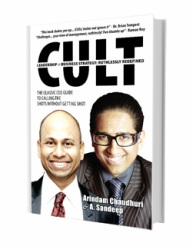Last December, the state assembly of Gujarat passed a bill to make voting mandatory – that bill is still to see a nod from the Governor. Revisiting the issue, L K Advani and Narendra Modi both recently echoed the viewpoint again and asked the legislation to make voting compulsory in the state, especially after a low turnout rate in the recent civic elections. On an average, the voter turnout rate in Gujarat has been around 50 per cent, while a month back Bihar saw a turnout rate of 43-45 per cent! The recent developments with respect to compulsory voting remind me of an editorial of mine that I wrote way back in 2007 – on allowing voting through SMS! Although I never advocate mandatory voting in a democracy, as that is not logical, what is essential is a larger engagement of the electorate which has been diminishing by the day. In fact, this larger engagement need not be just for a few constituencies, but it should be applicable for the whole nation!
Obviously, there is practically no better way to rationalize the electoral process than by making the electorate wider with a singular objective of universal suffrage. Given the current voter turnout rates that hardly touch a mark of 50 per cent these days, the election results fail to reflect the actual mandate, as a major proportion of the electorate chooses not to exercise their franchise! And the most unfortunate part is that a majority of people who abstain from voting are the youth and the educated class. They feel completely disengaged from the election process on account of the process itself (which till recently was full of rigging and other forms of malpractices), the quality of candidates, and the political system as a whole. But then, what most do not realize is that their not voting not only leads to the selection of an incapable person (who is a criminal 25 per cent of the time) but, for that matter, also questions the duties attached to our fundamental rights. This also reminds me of those horror years when India saw the repercussions of low voters’ turnout rate – where the government lasted for few days to few weeks (twice in 1996 and then in 1998) costing the nation massively! The situation has been so bad that the last 13 general elections have seen an average turnout rate of 59.63 per cent (least being 33 per cent and maximum being 61.97 per cent).
The issue of a larger engagement gets more pertinent as conducting of elections are a huge expense to the nation. As per the official reports, India invested a staggering sum of Rs 100 billion – or Rs 10,000 crore – in the last general elections. A trend analysis on the expenditure over the last 30 years indicates that every year the expenditures on Lok Sabha elections increase by nothing less than 40-45 per cent. Over and above the official expenditure, even the political parties indulge in huge expenditures in their respective campaigns and to lure the voters. In 2004, in the much hyped about ‘India Shining’ campaign, the BJP had frittered over Rs 75-100 crore, while the last election saw Congress and BJP spending more than Rs 250 crore each.
Moreover, the idea of a larger engagement in voting is not discreet but is well present across the world. Countries like Australia, Argentina, Belgium, Brazil, Chile, Cyprus, Democratic Republic of the Congo, Ecuador, Fiji, Lebanon, Liechtenstein, Nauru, Peru, Singapore, Turkey, Uruguay et al, witness an average of 90-95 per cent voting, thus bringing to power those governments that are truly people’s representatives – all thanks to the systems they practice!
As I wrote back in 2007, along with making voting broadbased, it’s important to make it accessible – more mobile polling booths and voting through mobiles/Internet could assure high turnout. And further, along with this, there should be the final choice that many in India have been fighting for. The choice to vote for ‘None of the above’! Democracy might take a new form then. We might have a result that looks like – ‘Congress’ 24%, ‘BJP’ 24%, ‘Others’ 1% and ‘None of the Above’ 51%! The seats in every Parliament should also be distributed in the ratio of votes polled as it should be in a true democracy. While democracy then will replace the existing DEMON-OCRACY in India, politicians will know that the only way to stay in power is by hard work for the people; and they will start doing that, instead of indulging in criminal activities. And whenever there is a new scam, mobile companies can make some more money by having a snap opinion poll asking voters to comment on whether they still want the government in power. Such opinion polls can’t go wrong, nor can they be debated. 3
We might finally end up getting governments truly for the people, by the people and of the people!
For more articles, Click on IIPM Article.
For More IIPM Info, Visit below mentioned IIPM articles.
IIPM B-School Detail
IIPM makes business education truly global
IIPM’s Management Consulting Arm - Planman Consulting
Arindam Chaudhuri (IIPM Dean) – ‘Every human being is a diamond’
Arindam Chaudhuri – Everything is not in our hands
Planman Technologies – IT Solutions at your finger tips
Planman Consulting
Arindam Chaudhuri's Portfolio - he is at his candid best by Society Magazine
IIPM ranked No 1 B-School in India
domain-b.com : IIPM ranked ahead of IIMs
IIPM: Management Education India
Prof. Rajita Chaudhuri's Website

 RSS Feed
RSS Feed